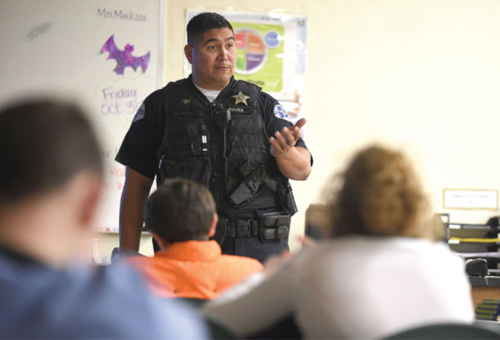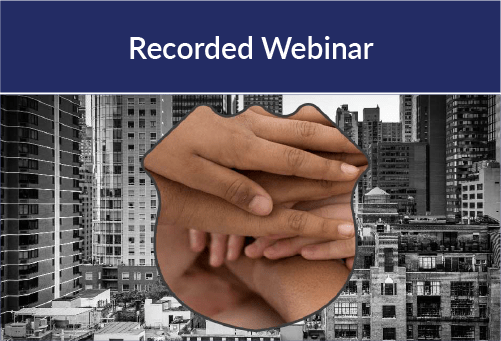


Avoid potential conflict both professionally and personally by learning to organize your thinking and respond calmly. Consider the approaches you can take to prevent and respond to verbal conflict. This course will explore the communication process, conflict prevention, to help you understand why conflicts occur. Instruction will also cover certain circumstances in which verbal de-escalation techniques may not be appropriate, and provide techniques to resolve such conflicts. Join us to learn how de-escalation techniques and communication skills can potentially defuse tense situations and lead to more successful outcomes. This training does not cover physical intervention techniques.

Gain insight and strategies to maximize how police agencies can connect with their community and important stakeholders through ongoing dialog and partnerships. Consider minority perceptions of policing due to historical events and ways to overcome some of these barriers. Discover strategies for creating a “learning organizational culture” while appreciating the fragile relationship with our communities. A focus will be on the importance of police legitimacy through ethics, empathy and equity.

Join other law enforcement and school personnel to address school violence and youth victimization concerns through the use of crime prevention and response strategies and review lessons learned from relevant case studies. Examine the impacts of trauma on youth and effective strategies for working with students experiencing mental illness and learning disabilities. Explore the most current trends among youth relating to social media and alcohol and substance abuse. Discuss successful prevention and intervention program models.

Review the steps Poarch Band of Creek Indians, Alabama’s only federally recognized tribe, took to overcome jurisdictional barriers to achieve implementation of state legislation known as the Poarch Band of Creek Indians – State Police Powers Act (Alabama Act #2018-393). Review the specific barriers that were overcome such as lack of state recognition, no available copies of MOU’s that were in prior existence, inability to use state academy for training; not honoring tribal courts, etc. Discuss how this enhanced multi-jurisdictional partnership has supported increased public safety for the Poarch Creek community.

Often times, the biggest role of a facility dog is to calm and support an individual during stressful situations. Learn what a facility dog is and how they are being used particularly as a school resource officer partner in K-12 schools and/or in tribal court settings. The process to obtain and train a dog, subjective observations, and data collected will be discussed.

This introductory course provides participants with practical verbal de-escalation techniques to diffuse conflicts and reduce the potential for violence. Participants will gain the skills needed to recognize the factors that contribute to anger and violence in the workplace, identify behaviors and warning signs of anger and conflict, and recognize individuals in crisis. The course emphasizes the importance of safety considerations during de-escalation and provides verbal and non-verbal communication techniques essential for effective conflict resolution. Participants will leave this training equipped with the knowledge and skills to effectively de-escalate conflicts and maintain safety.

This webinar will identify child-centered investigative protocols for law enforcement and CPS when responding to reports of a juvenile (adolescent and younger children) perpetrated child sexual abuse or exploitation, properly known as Problematic Sexual Behaviors or PSB. Discussion will include how the expanded use of technology by minors has led to an increase in facilitated and learned behaviors, and the importance of identifying these outside influences in the investigative process.

For all the various first responders engaged in public safety [police, firefighters, paramedics, dispatchers, social workers, and corrections staff], serving others often becomes the priority, leaving your own well-being vulnerable. This presentation focuses on equipping you, the battle-worn, casework-buried professionals on the frontlines, with practical tools and strategies to prioritize your physical, emotional, and relational health. Join us in this session – which will include humor and case examples - to invest in your most valuable asset – yourself. By focusing on improving yourself, you can help ensure that you continue to make a positive impact on the lives of children and families – including your own.

Professionals who work with traumatized children and adults typically experience different kinds of stress during their career. Learn how to prepare for, identify, and manage trauma responses in oneself.

Discuss the role of the leader in developing organizational, vision, mission, and values, and how important they are in driving community policing. Review internal skills that instill empowerment in the organization and external skills that earn trust throughout the community. Examine the role police can play in leading community problem solving and obtain resources to help implement the strategies discussed during the webinar.
